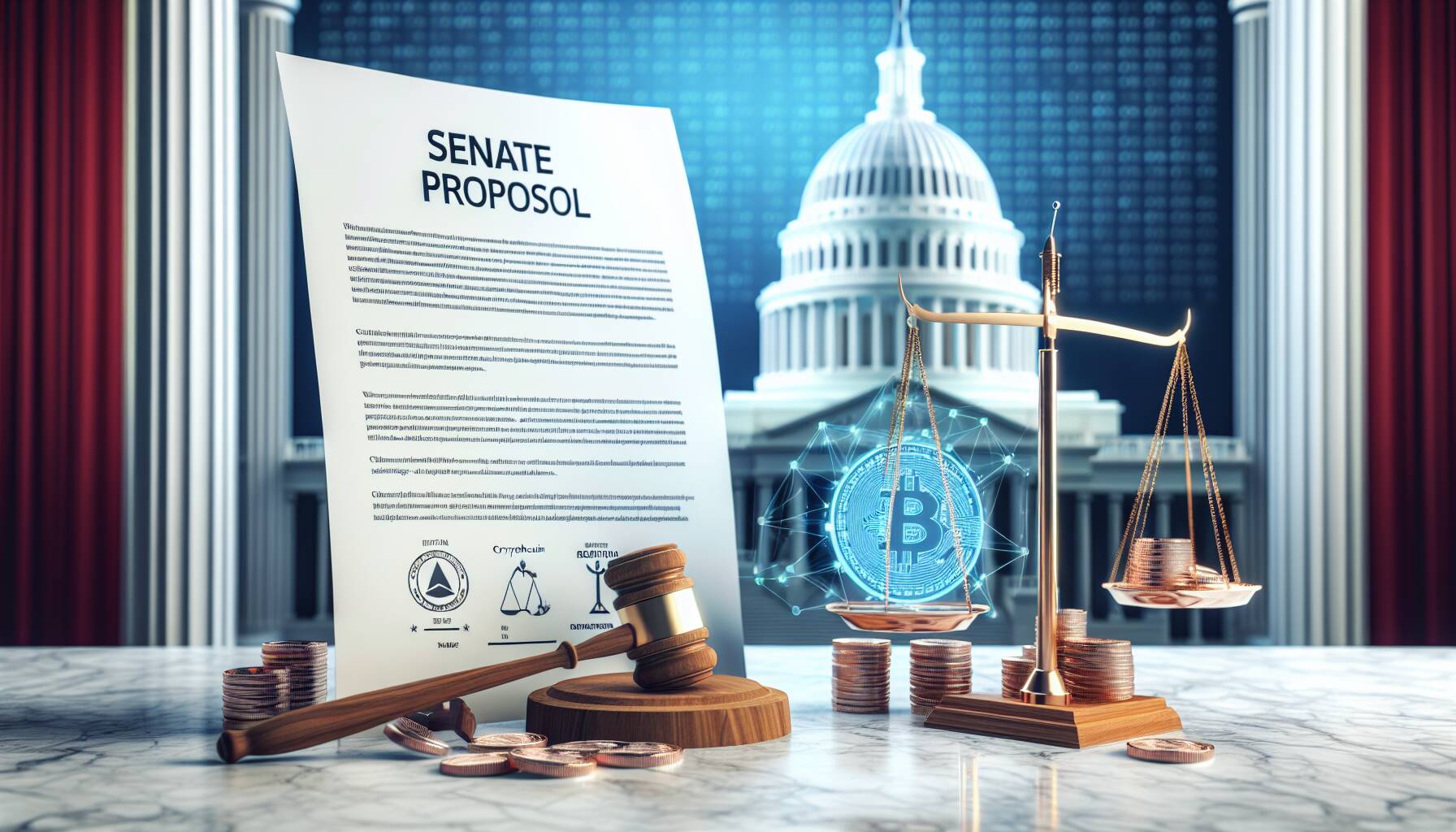The cryptocurrency landscape is currently in a state of flux as a new proposal from U.S. Senate Democrats threatens to reshape the regulation of decentralized finance (DeFi). This document, first reported by Politico, outlines a framework that could require firms facilitating customer interactions in DeFi to register with major regulatory bodies like the Securities and Exchange Commission (SEC) or the Commodity Futures Trading Commission (CFTC), categorizing them as brokers.
Legal experts, including Jake Chervinsky, the chief legal officer at Variant, have raised significant concerns, arguing that the proposal might effectively encompass “everyone in crypto.” He describes the suggested measures as fundamentally flawed, stating, “This is not a ‘first offer’ in a negotiation; it’s a list of demands that appear designed to kill the bill.” Meanwhile, Summer Mersinger, head of the Blockchain Association, warns that such regulations would not only hinder DeFi development but could also push innovation out of the United States entirely, calling the current language “impossible to comply with.”
Amid ongoing negotiations regarding the federal budget, the Senate’s efforts to establish a coherent crypto market structure had appeared to be gaining traction. However, pushback from influential lawmakers like Senator Mark Warner, who has voiced concerns over crypto’s potential use in illicit finance, adds another layer of complexity to the discussion.
“The Treasury Department, markets regulators, and the Federal Reserve could gain greater power to target bad actors in the DeFi space,”
the proposal suggests, aiming to identify those responsible for developing, deploying, or profiting from DeFi platforms. While the initiative seeks to offer some legal protection to developers of open-source software, it simultaneously raises fears about compliance challenges for active DeFi firms.
In Congress, there’s a push from the House of Representatives to adopt the already established Digital Asset Market Clarity Act as a legislative base, rather than revamping the Senate’s approach entirely. However, any Senate legislation will need bipartisan support to meet the typical 60-vote threshold, which complicates matters, especially given the need for Democrats to propose amendments before agreeing to previous Republican drafts.

Regulation of Decentralized Finance in the U.S.
The recent proposal by U.S. Senate Democrats to regulate decentralized finance (DeFi) could have significant implications for the crypto industry and its users.
- Registration Requirements:
- Firms or individuals handling customer needs must register with the SEC or CFTC.
- Potentially impacts anyone involved in crypto operations, raising compliance concerns.
- Impact on DeFi Development:
- The proposal could effectively ban DeFi, wallet development, and related applications in the U.S.
- Concerns that responsible development may shift overseas if regulations are too restrictive.
- Regulatory Reach:
- Government agencies would be empowered to identify and hold accountable those profiting from DeFi.
- Definition of “sufficiently decentralized” could exclude certain protocols from regulations.
- Liability Protection for Developers:
- Proposal aims to exempt software developers from legal liability for open-source projects, provided they don’t profit.
- This could encourage innovation but also raises questions about accountability.
- Bipartisan Legislative Challenges:
- Senate legislation requires bipartisan support, complicating the passing of new regulatory frameworks.
- Differences among lawmakers could delay or alter the proposed regulations significantly.
“Many aspects of the proposal are fundamentally broken and unworkable.” – Jake Chervinsky
“This language as written is impossible to comply with and would drive responsible development overseas.” – Summer Mersinger
Analyzing the Impacts of the New U.S. Senate Proposal on Decentralized Finance
The recent U.S. Senate proposal aimed at regulating decentralized finance (DeFi) has triggered significant reactions within the crypto community and among lawmakers. This initiative, which mandates registration with regulatory bodies like the SEC or the CFTC for participants engaging with customers in DeFi operations, introduces a contentious regulatory landscape. It notably resembles previous efforts to impose more structure on an increasingly unregulated sector but appears to have its own unique set of advantages and drawbacks when compared to past announcements and regulatory frameworks.
Competitive Advantages: The proposal allows for a clearer delineation of responsibilities and accountability for those operating in the DeFi space. By articulating which entities will need to register and comply with regulations, it aims to create a more transparent environment, potentially making it easier for legitimate firms to operate without fear of legal repercussions. Additionally, the effort to segment sufficiently decentralized protocols from those that are not offers a semblance of protection for innovative projects not primarily driven by profit, aligning with calls for clarity in legal responsibilities for software developers.
Disadvantages: However, this stringent regulatory approach may render many current operations in the DeFi sector unviable, echoing sentiments from industry leaders like Summer Mersinger. The complexity and ambiguities in the proposal raise concerns about compliance, likely pushing many projects and talent to jurisdictions with more favorable conditions. Critics argue that the proposed demands could stifle innovation in an industry that thrives on openness and decentralization. Furthermore, the proposal’s timing amidst ongoing negotiations concerning federal budget disagreements raises uncertainty, making it difficult for stakeholders to navigate the landscape effectively.
This regulatory pivot could profit large established firms that are already accustomed to operating under stringent compliance frameworks, as they may be better positioned to absorb the costs of compliance compared to smaller, more agile startups. Conversely, for budding DeFi projects or independent developers, this proposal creates a precarious environment that could inhibit their growth or even compel them to exit the U.S. market entirely. Thus, the implications of this legislative move create a dichotomy where certain players may benefit while others face significant hurdles.
As the discussion unfolds, it will be crucial for all stakeholders—be they lawmakers, developers, or investors—to engage actively to ensure that a balanced approach to regulation evolves, allowing the potential of DeFi to flourish without compromising safety or oversight.
















